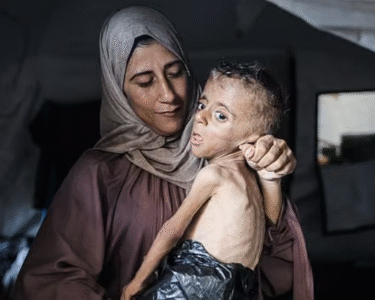Israel conducted extensive military operations against Houthi-controlled Yemen and imposed comprehensive air and naval blockades following the interception of a ballistic missile fired toward Israeli territory yesterday. Defense Minister Israel Katz issued stark warnings that the Iranian-backed organization would face escalating consequences for continued attacks against Israel.
The missile launch, which forced Israeli citizens to seek shelter amid renewed security alerts, was successfully intercepted by Israeli Defense Forces without causing casualties or damage. Security sources described the successful interception as fortunate, noting the potential for extensive destruction had the projectile reached its intended target.
In immediate response to the attack, Israeli forces struck infrastructure and energy targets within Yemen this morning, according to Katz’s public statement. The Defense Minister emphasized that the Houthis would “pay compound interest for every attempt to fire toward Israel” and declared the current operations as “only the beginning”, promising that subsequent actions would be “strong and painful”.
The most pointed element of Katz’s warning came in his declaration that “whoever raises a hand against Israel – his hand will be cut off”, signaling Israel’s intention to respond with particular severity to attacks from the Yemen-based organization.
Alongside the military strikes, Israel implemented comprehensive air and naval blockades designed to restrict Houthi movement capabilities and disrupt supply chains. The blockade strategy aims to prevent the flow of military equipment and combat materials to the organization, particularly weapons and support originating from Iran, thereby undermining the group’s operational capacity against Israeli targets.
The escalation follows the Houthis’ public declaration of war against Israel, marking a significant intensification of hostilities between the Iranian proxy organization and the Jewish state. The Houthis, formally known as Ansar Allah, have gained control over substantial portions of Yemen in recent years while developing advanced military capabilities through extensive Iranian assistance and training.
Israel views Houthi operations as integral to Iran’s broader regional threat network, which includes Hezbollah forces in Lebanon, various Shiite militia groups operating in Syria and Iraq, and Iranian military personnel positioned throughout the Middle East. Israeli officials characterize this network as Iran’s regional “axis of evil” and consider the Yemen-based threat as part of Tehran’s comprehensive strategy against Israeli interests.
The Houthi organization has transformed Yemen into what Israeli security analysts describe as a persistent strategic threat hub, utilizing the war-torn nation’s territory as a foundation for establishing military infrastructure and conducting terrorist operations against Israel. The group’s control over significant portions of Yemen has enabled it to develop sophisticated weapons capabilities while operating with relative impunity from the fractured country’s remote regions.
Yesterday’s missile attack reminded Israeli civilians of the complex and multi-front security environment they face, where threats can emerge from distant locations beyond traditional conflict zones. The incident prompted widespread anxiety among the population as air raid sirens sounded across the country, forcing citizens to interrupt their daily routines and seek protective shelter.
The Houthis have emerged as a major destabilizing force throughout the Middle East region, posing threats not only to Israel but also to international maritime traffic in critical shipping lanes. Their activities have disrupted commercial navigation in the Red Sea and surrounding waters, affecting global supply chains and international commerce.
The Iranian support network enables the Houthis to maintain sophisticated military operations despite Yemen’s ongoing civil conflict and humanitarian crisis. This backing includes weapons transfers, training programs, financial assistance, and strategic coordination that allows the organization to project power far beyond Yemen’s borders.
Senior Israeli security officials are conducting continuous situation assessments to determine subsequent steps in the campaign against Houthi capabilities. Military sources indicate that Israeli policy will emphasize decisive and sustained responses to any hostile fire originating from Yemen, regardless of the operational challenges posed by the significant geographical distance between the two territories.
The air and naval blockade represents a coordinated multi-domain approach designed to apply simultaneous pressure on Houthi operations from several directions. This strategy seeks to degrade the organization’s ability to maintain its combat systems while limiting its capacity to conduct future operations against Israeli targets.
The current escalation highlights the expanding geographical scope of Middle Eastern conflicts, with Yemen-based forces now actively engaging Israeli territory despite the substantial distance separating the two regions. This development adds another dimension to Israel’s security challenges, requiring military planners to account for threats from increasingly diverse and distant sources.
Defense Minister Katz’s threatening language reflects Israel’s determination to establish effective deterrence against the Houthi organization while signaling to other regional actors that attacks against Israeli territory will face severe consequences regardless of their origin point.
Israeli officials emphasize that the morning’s retaliatory operations constitute an initial response rather than a comprehensive conclusion to the crisis, with additional measures under consideration as the situation develops.





